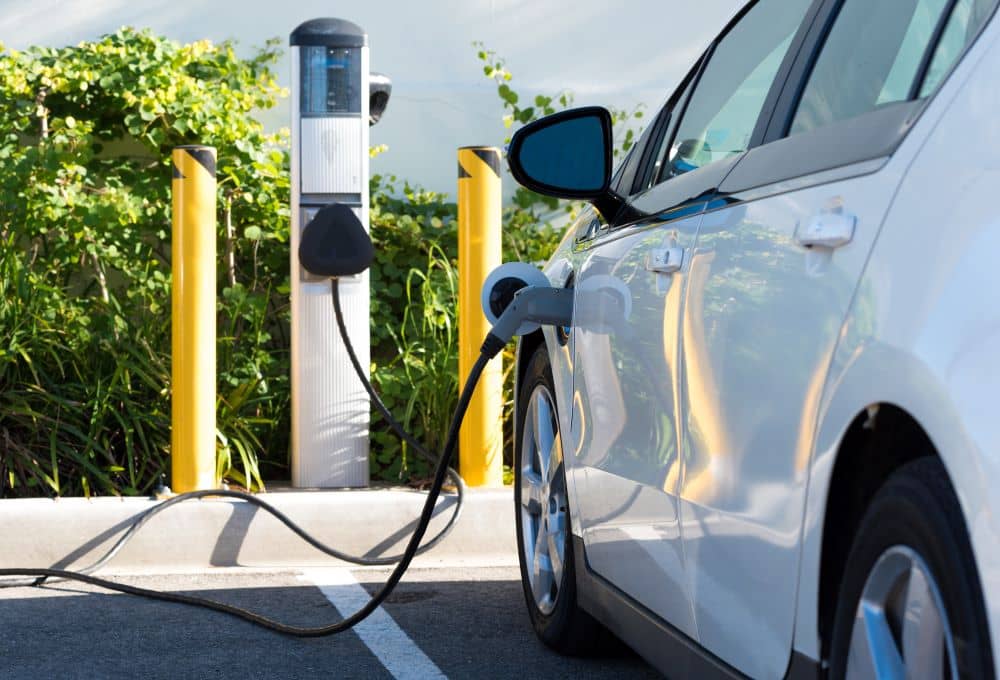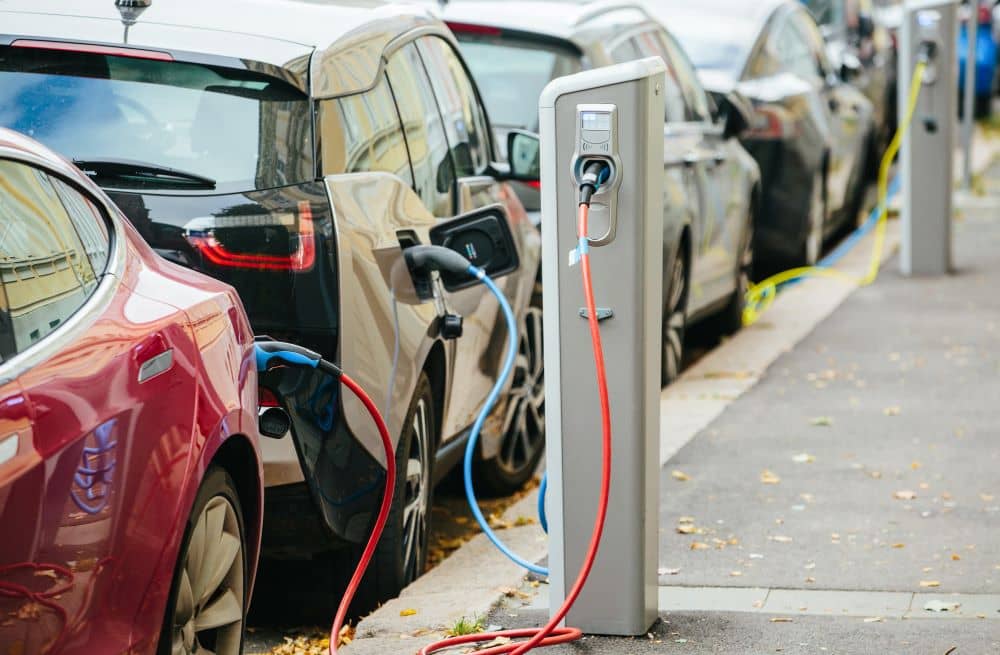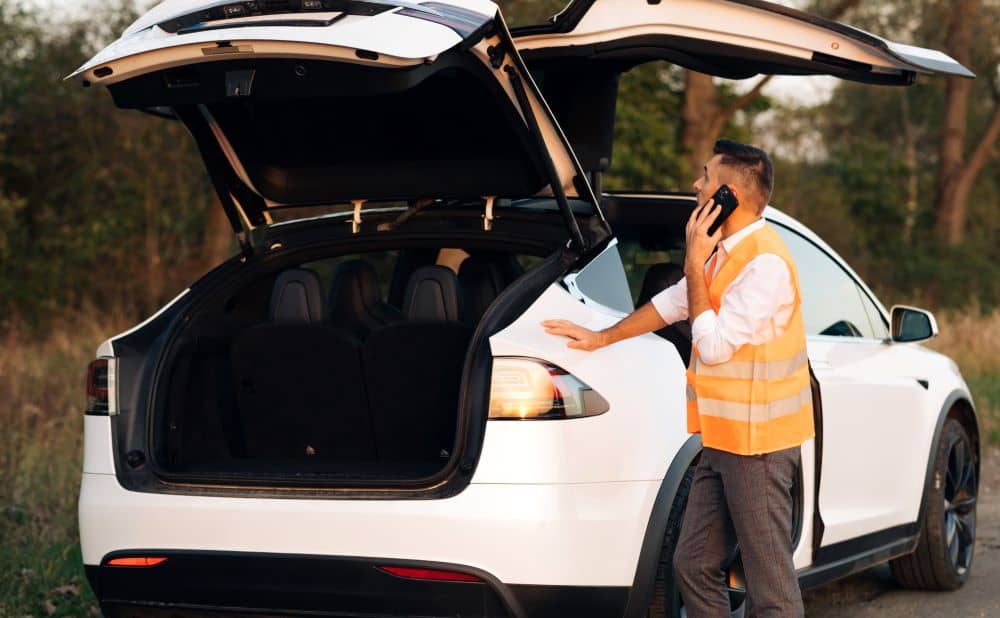As electric vehicles (EVs) become more commonplace in Australia, the question of whether or not they have the ability to tow a caravan or a boat arises frequently.
Because new technology, upgrades, and updates happen at lightning speed, it is hard to respond to the question with a definitive yes or no. The answer requires an examination of a specific car or truck rather than a generalisation.
Towing Doubts
In May 2019, Prime Minister Scott Morrison voiced his opinion regarding the promise of a 50 per cent increase of electric cars on Australian roads by 2030. Morrison cast a disparaging light on EVs when he told reporters that an electric vehicle could not tow a trailer or a boat. The Prime Minister also dangled the notion of “the end of the weekend”, claiming an EV will not get families to their favourite camping grounds. Although Morrison’s comments were politically motivated, he did raise the question of EVs towing capabilities.
A Rebuttal of Sorts
In June of 2019, the BMW Group and Lufthansa Cargo teamed up to create a video of a fully electric Mini Cooper SE towing a Boeing 777 cargo jet across an airport tarmac in Frankfurt Germany. Whilst the transport jet held no cargo; it tipped the scales at approximately 150 tonnes.
Even though the video’s purpose was publicity, it created an impressive show of power from a car many people believed incapable of such a feat. The video was a well designed attention-grabbing bit of advertising. Unfortunately, the controlled conditions and limited distance did not prove the Mini Cooper’s ability to tow a heavy load on traffic-laden roads across long distances in various weather conditions.
Is It Accurate To Say an Electric Vehicles Should Not Tow?
Even though EV towing abilities vary depending on the vehicle, deeming the entire sector of electric vehicles as unfit for towing is an overgeneralization and incorrect.
After Prime Minister Morrison’s comments, ABC News spoke with experts to learn more about the facts of towing with EVs. Here is their information,
- Electric vehicles produce a superior level of torque, which determines the towing capacity of an auto. There are EVs that have a higher output of power than cars using petrol.
- Some EVs on the market could travel 300-400km on one charge at towing capacity
- The Tesla Model X could travel up to 500km on a single charge while towing at capacity
- Several electric vehicles presently in development will have the ability to tow a boat or trailer as easily and efficiently as a standard petrol vehicle. A majority of these will be available for consumers well before 2030.
How Long Does It Take to Charge an Electric Vehicle?
Because every electric vehicle comes with its specifications, making blanket generalisations about performance and charging time is not particularly useful. Additionally, your EV charging time will depend on the type of charging station you are using to power up your car. In some cases, your charging station has the most significant impact on your charging time.
-
The Type of Car
Manufacturers of electric vehicles will offer estimates detailing how long a charge will take. However, these are only the car maker’s educated guesses because they are not able to factor in all of the details, which can impact charging time.
-
The Kind of Charging Station
A large number of people purchasing electric vehicles believe they will charge their car by plugging it into a wall outlet at home. Even though this is a fairly common practice, it is also one of the slowest ways to recharge your EV.
For a faster at-home recharge, consider purchasing a wall box. Most EV makers have these, and several wall boxes on the market will work for many EVs.
When you must recharge on the go, look for a fast-charging station. Some of these can get you from empty to 80 per cent in around 30 minutes.
What are the Main Problems That Can Happen When Towing with Electric Vehicles?
Because the electric vehicle industry is still relatively young, there are not many exhaustive studies offering information. However, there are a few persistent issues that raise some concern when it comes to using an EV to tow your caravan or boat.
- The potential for exceeding the gross vehicle mass exists – This is mainly an issue if an uncertified EV is fitted with a hitch. By going over the gross vehicle mass (GVM), you will place undue strain on the vehicle’s suspension, drivetrain, and breaks. For more info on GWM view this article.
- The infrastructure that is needed to provide charging stations for electric vehicles – You may have plenty of opportunities to charge your EV when you are relatively close to a city. However, taking the family for a cross-country trip towing a trailer or boat would be slow and laborious at best and perhaps totally not feasible.
- Time spent charging – Even though the amount of time you need to spend charging an electric vehicle is shorter than it once was, you still need significantly more time to go from low power to a full charge. The idea may not seem terrible if you are hitting the road with your mates. However, you may have second thoughts if you are on holiday with gran, small children, and the family dog.
- Battery fires – While there is a slight possibility that a drained EV battery might cause a fire, the connection to towing is somewhat removed.
EV Towing Capacity
Here is a recent list of EVs available in Australia and the manufacturer’s approved towing capacity. Australian regulations allow unbraked trailers up to 750kg).
Audi e-tron
Maximum towing capacity (unbraked trailer): 750kg
Maximum towing capacity (braked trailer): 1800kg
BMW i3
Maximum towing capacity (unbraked trailer): 0kg
Maximum towing capacity (braked trailer): 0kg
Hyundai IONIQ Electric
Maximum towing capacity (unbraked trailer): 0kg
Maximum towing capacity (braked trailer): 0kg
Hyundai IONIQ 5 (long-range only)
Maximum towing capacity (unbraked trailer): 750kg
Maximum towing capacity (braked trailer): 1600kg
Jaguar I-PACE
Maximum towing capacity (unbraked trailer): 0kg
Maximum towing capacity (braked trailer): 0kg
Mercedes-Benz EQA 250
Maximum towing capacity (unbraked trailer): 750kg*
Maximum towing capacity (braked trailer): 750kg*
Mercedes-Benz EQC 400
Maximum towing capacity (unbraked trailer): 750kg*
Maximum towing capacity (braked trailer): 1800kg*
MG ZS EV
Maximum towing capacity (unbraked trailer): 0kg
Maximum towing capacity (braked trailer): 0kg
Nissan LEAF
Maximum towing capacity (unbraked trailer): 0kg
Maximum towing capacity (braked trailer): 0kg
Porsche Taycan
Maximum towing capacity (unbraked trailer): 0kg
Maximum towing capacity (braked trailer): 0kg
Tesla Model 3
Maximum towing capacity (unbraked trailer): 750kg
Maximum towing capacity (braked trailer): 1000kg
Tesla Model S
Maximum towing capacity (unbraked trailer): 0kg
Maximum towing capacity (braked trailer): 0kg
Tesla Model X
Maximum towing capacity (unbraked trailer): 450kg
Maximum towing capacity (braked trailer): 2250kg
Is it Safe to Tow an Electric Vehicle?
If your electric vehicle breaks down, your best course of action is to contact a reputable towing company with experience towing EVs. Trusting your car to a towing company without knowledge or experience with electric vehicles can be disastrous.
At Fast Melbourne Towing, our staff has the know-how to tow your EV safely. We also offer emergency assistance 24 hours a day, seven days a week. You can count on us to provide fast, friendly, and safe service for your EV.



